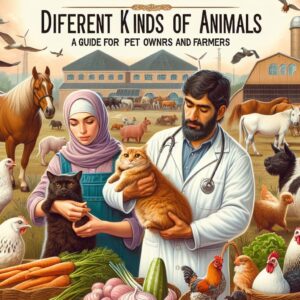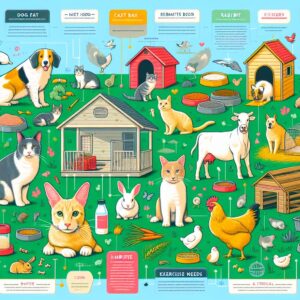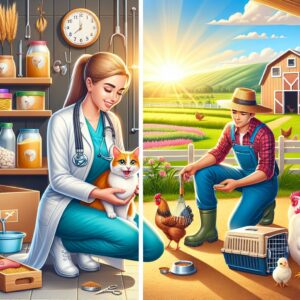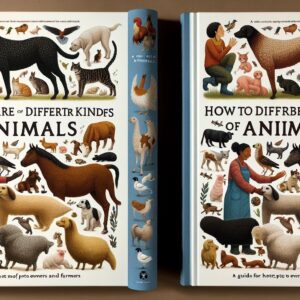Introduction:
Owning and caring for animals can be a rewarding and fulfilling experience, whether you have pets in your home or if you are a farmer tending to livestock. However, each type of animal requires specific care and attention to ensure their health and well-being. In this guide, we will explore essential aspects of animal care, from ensuring proper nutrition to addressing injuries and illnesses.
Body:
-
Nutritional Needs:
Providing a balanced diet is crucial to maintaining the health of your animals, be they pets or livestock. Pet owners should consult with their veterinarian to determine the appropriate type and amount of food required for their specific pets. Similarly, farmers should consider the dietary demands of their livestock, which may vary based on the animal’s age, breed, and purpose. -
Regular Health Check-Ups:
Regular visits to the veterinarian are essential for both pets and livestock. Annual check-ups can help identify any early signs of illness, preventing potential health problems down the line. Vaccinations and deworming treatments are also critical in protecting animals against common diseases. Farmers should establish a professional relationship with a livestock veterinarian to ensure the continual health of their animals. -
Exercise and Mental Stimulation:
Animals, including pets and livestock, benefit greatly from exercise and mental stimulation. For pets, this can involve daily walks, interactive toys, or engaging in activities that match their natural instincts. On the other hand, farmers should ensure that their livestock have adequate space and opportunities for movement, which promotes muscle development and avoids health issues associated with prolonged confinement. -
Emergency Preparedness:
Accidents and unexpected circumstances can happen, posing risks to our animals. Pet owners should have a first aid kit readily available, including essentials such as bandages, antiseptics, and pet-safe pain relievers. For farmers, having a protocol in place for emergency situations, such as severe weather events, is crucial to ensuring the safety of livestock and responding promptly to their needs. -
Caring for Injured Wildlife:
Wildlife encounters may occasionally lead to the discovery of injured animals. If you come across an injured wild animal, it is essential to prioritize their safety. Before intervening or attempting to provide care, reach out to local wildlife rehabilitation centers or animal control for guidance. These professionals have the knowledge and resources necessary to handle injured wildlife appropriately.
Conclusion:
Caring for animals, whether they are pets or livestock, requires a commitment to their well-being. Proper nutrition, regular health check-ups, exercise, and mental stimulation are essential aspects of animal care. Additionally, being prepared for emergencies and knowing how to address injuries in wildlife are crucial for responsible ownership. By following these guidelines, pet owners and farmers can safeguard the health and happiness of the animals under their care. Remember, the love and care we provide to our animals contribute to a world where animals can thrive and bring joy into our lives.



